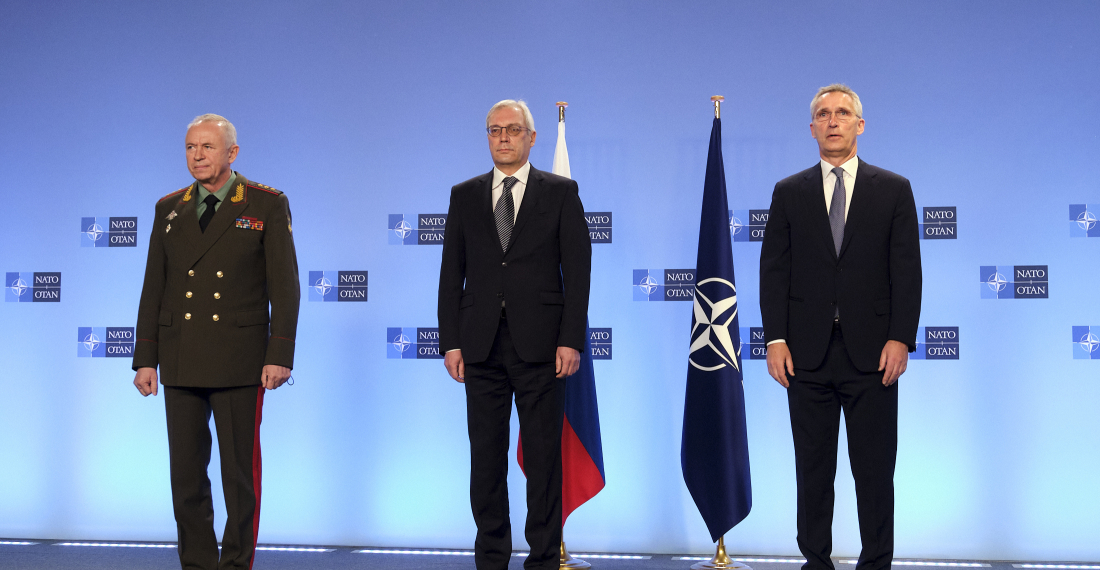A meeting of the NATO-Russia Council was held in Brussels on Wednesday, 12 January at a time when relations between the two is at its lowest point since the end of the Cold War.
Speaking at a press conference after the meeting at NATO headquarters in Brussles, NATO Secretary General Jens Stoltenberg, who chaired the meeting, said:
“This was not an easy discussion, but that is exactly why it was so important.” He noted that NATO Allies are ready to meet again with Russia to discuss a number of topics in greater detail and to put concrete proposals on the table. “There are opportunities for constructive engagement which should not be missed, in the interest of security in Europe,” he said.
Stoltenberg added,
We had a very serious and direct exchange on the situation in and around Ukraine and the implications for European security. There are significant differences between NATO Allies and Russia on these issues. Our differences will not be easy to bridge.
But it is a positive sign that all NATO Allies and Russia sat down around the same table, and engaged on substantive topics, after two years where such meetings were not possible to convene.
Today Russia raised the proposals that they published in December, aimed at addressing their security concerns. These include demands to stop admitting any new members to NATO, and to withdraw forces from eastern Allies. Allies on their side reaffirmed NATO’s Open Door policy and the right for each nation to choose its own security arrangements.
Allies made clear that they will not renounce their ability to protect and defend each other including with presence of troops in the eastern part of the Alliance.
At the same time, both Russia and NATO allies expressed the need to resume dialogue and to explore a schedule of future meetings. NATO Allies are ready to meet again with Russia to have discussions in greater detail, to put concrete proposals on the table, and to seek constructive outcomes. In particular, Allies would like to discuss concrete ways to increase the transparency of military exercises, to prevent dangerous military incidents, and reduce space and cyber threats.
Allies have also offered to look at arms control, disarmament and non-proliferation. Including to address reciprocal limitations on missiles, and to address nuclear policies.
On lines of communications, NATO Allies are interested in looking at ways to improve civil and military communications channels, and the possibility of re-establishing our respective offices in Moscow and Brussels. NATO Allies are clear-eyed about the prospects for progress in these talks. They expressed serious concern about the Russian military build-up in and around Ukraine, and called on Russia to immediately de-escalate the situation, and to respect the sovereignty and territorial integrity of its neighbours. They also called on Russia to refrain from aggressive force posturing and malign activities directed against Allies, and abide by all its international obligations and commitments.
All this means that our dialogue is difficult, but even more necessary. NATO Allies stressed that they will make every effort to find a political way forward. I also welcome the bilateral consultations between the United States and Russia, and tomorrow’s meeting of the OSCE.
source: commonspace.eu with NATO
photo: Russia's Deputy Foreign Minister Alexander Grushko and Deputy Defence Minister, Alexander Fomin, pose for a picture with NATO Secretary General, Jens Stotlenberg ahead of the NATO Russia Council on 12 Janauary 2022 (picture courtesy of NATO)






